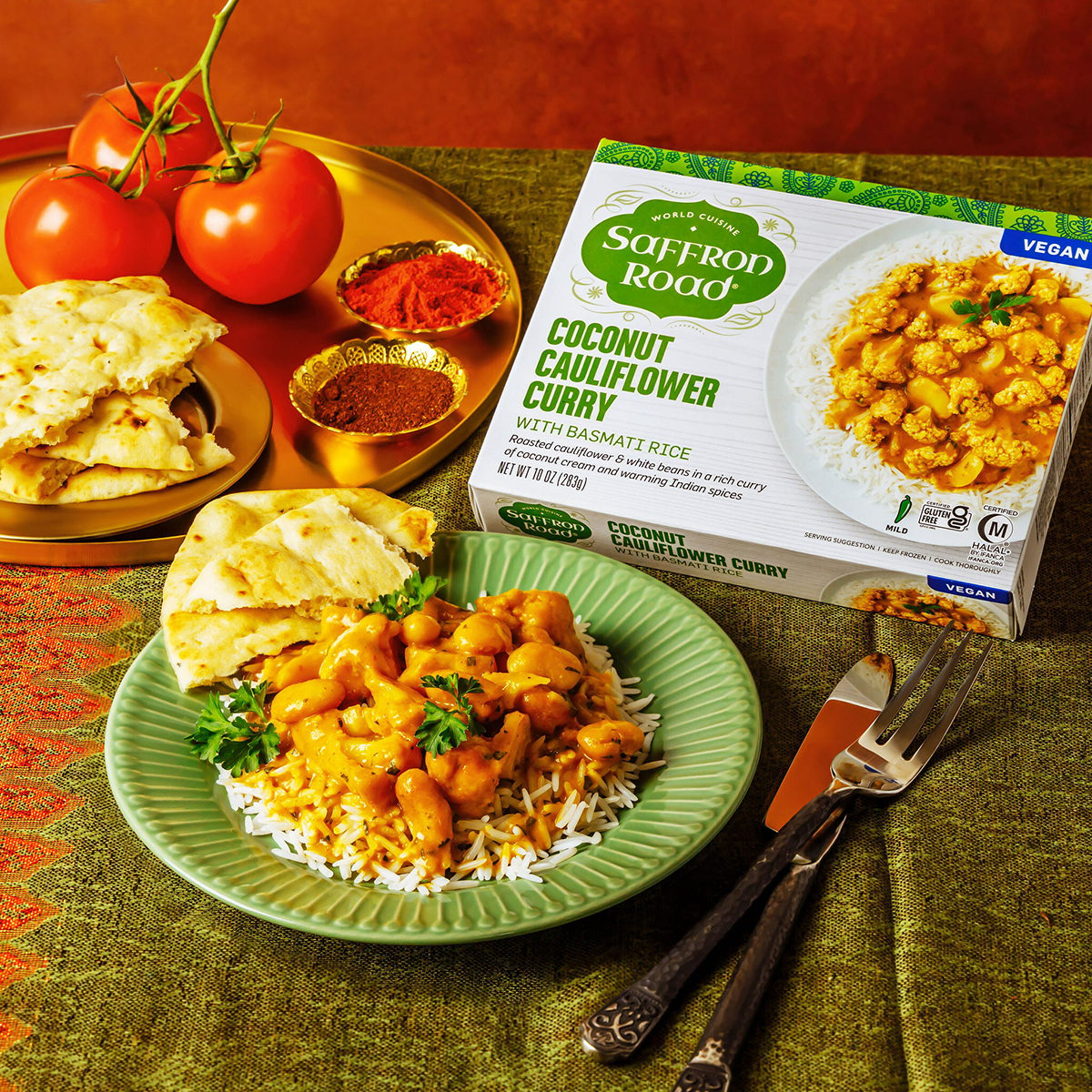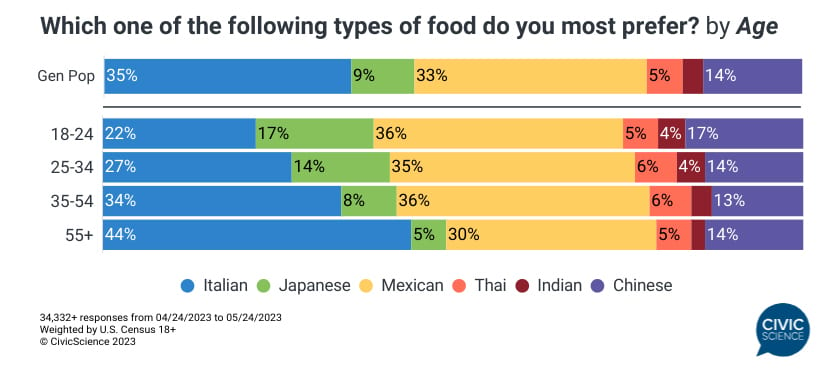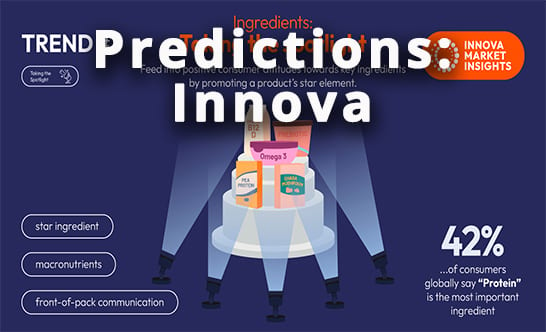WHAT’S NEXT IN 2024?
CONSUMER & PRODUCT TREND PREDICTIONS
Gen Z’s dietary preferences are evolving. To appeal to them, diet and nutrition brands will need to embrace international flavors and cuisines. We predict growth in categories that successfully blend Gen Z’s desire for nutritious, plant-forward foods with their craving for authentic, internationally-inspired flavors.
Younger generations are starting to turn towards diets at record rates. In 2021, 52% of Americans aged 18-34 followed a diet/eating pattern. Just two years later, that rate has jumped 14 points to 66%, the highest of any generation. These diets are typically calorie-counting, clean eating, mindful eating, and plant-based eating, all of which require specialized foods or behaviors. Gen Z is disproportionately likely to seek out clean label and plant-based products, and they are particularly interested in foods that feature whole plants.
By Emily Auerbach
Diet culture goes multicultural to appeal to Gen Z.
Food Meets Focus, International Flair
Photo courtesy of Getty Images / Zanin / iStock

So why is Gen Z seeking to evolve their food consumption? For many, a diet is a way to improve their physical appearance. Gen Z is more likely than Gen X or Millennials were at their age to try to lose weight through dieting despite being less likely than their older counterparts to be overweight or obese. Simultaneously, increased use of social media—including use of filters—encourages social comparison and can harm body image for female Gen Z-ers, who are the most likely group to pursue weight loss through dieting.
Other Gen Z consumers embrace diets as a way to improve their relationship with food. Gen Z is the likeliest generation to say that food makes them feel guilty, anxious, uncomfortable, and stressed, with nearly two in three Gen Z-ers saying that they believe their eating patterns are “wrong.” On the flip side, some Gen Z-ers are seeking to leverage food as a tool to improve their mental and emotional health in the midst of a generational mental health crisis.

Winning Formula: More authentic, ethnic options appealing to specialty eating behaviors. Photo courtesy of Saffron Road Foods

Photo courtesy of CivicScience 2023
In short, Gen Z has a complicated relationship with food, and brands have an opportunity to help improve that relationship by leveraging another critical Gen Z trend: their passion for international flavors.
Gen Z consumers are well known for their love of bold, authentic flavors. As the most diverse generation in US history, Gen Z grew up with a wider variety of flavors than previous generations. While previous generations considered Italian their favorite international cuisine, Gen Z’s tastes are diversifying, with Japanese, Mexican, and Chinese cuisines growing in popularity. Thanks to Gen Z, restaurants are adding more internationally-inspired and spicier items to their menus. They’re also eating more diverse foods at home; while just 19% of Boomers say they ate a globally influenced dish in the last week, more than half of Gen Z consumers have.
Gen Z is disproportionately likely to seek out clean label and plant-based products, and they are particularly interested in foods that feature whole plants.

Instant Appeal: New Tangle Bulgogi Alfredo Tangluccine combines distinct Korean Bulgogi flavor to the already familiar Alfredo sauce. Photo courtesy of Samyang Foods Co. Ltd.
We predict that these two Gen Z phenomena—specialized diets and a love of international flavors—will fuse to fuel growth across multiple categories. Whole plants essential to international diets, such as lentils, beans, and sweet potatoes, will continue to see growth. Successful manufacturers will be those who reformulate to be both compliant with diets such as Whole30 or the Mediterranean diet, and who include the bolder flavors craved by Gen Z. PF
Emily Auerbach is an associate innovation manager at Mattson. Mattson is a Silicon Valley-based food and beverage product innovation firm, providing services to clients both small and large, from insights and strategy to creative conceptual development to product design, development and commercialization. Learn more at www.MattsonCo.com


